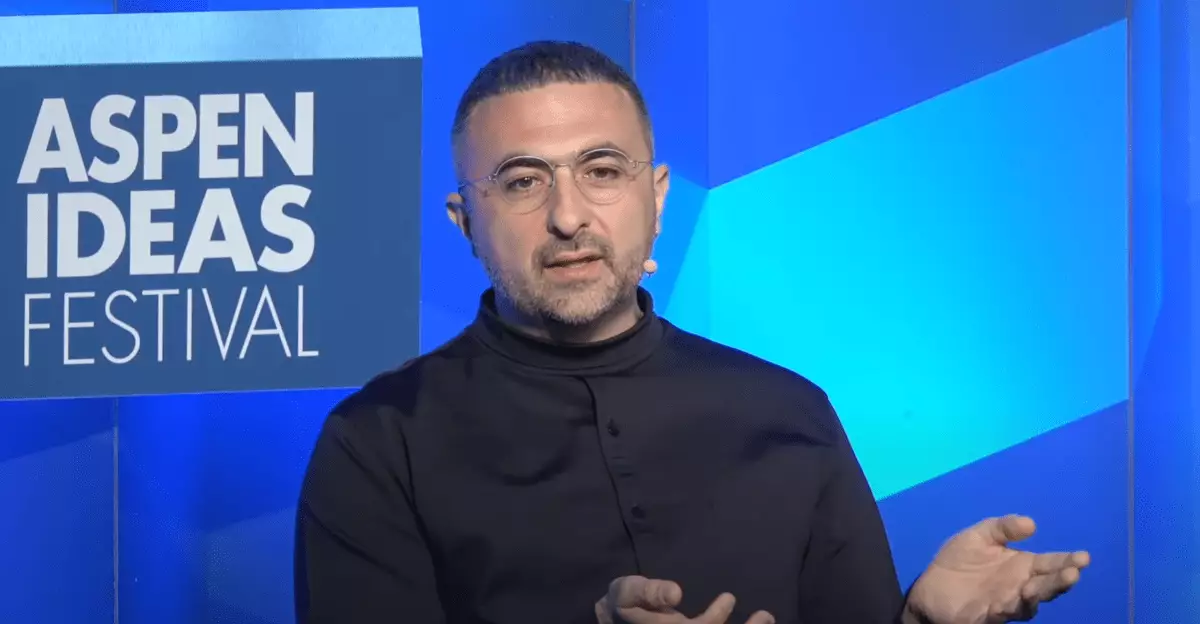At the recent World Economic Forum in Davos, Salesforce CEO Marc Benioff made headlines with his candid commentary regarding the evolving relationship between Microsoft and OpenAI. This commentary illuminated not only the intricacies of their collaboration but also spoke volumes about the competitive nature of the tech industry. With OpenAI’s aspirations looming large, Benioff’s laughter hinted at the substantial shifts that may redefine the landscape of artificial intelligence (AI) collaboration in the near future.
OpenAI’s strategic partnerships and decisions reveal a determination to diversify its technological alliances, notably through its collaboration with SoftBank and Oracle on a monumental data center initiative named Stargate. This marks a significant departure from the previously exclusive relationship with Microsoft. Benioff’s chuckles were not mere amusement; they underscored his conviction that OpenAI needs to establish a robust presence across multiple platforms. Observers are now aware that Microsoft’s ambition to develop its own AI frameworks could potentially diminish any reliance on OpenAI’s groundbreaking technologies.
OpenAI’s trajectory has indicated its quest for autonomy and dominance in the tech sphere. With the organization recently attributing product delays to a lack of computing resources, it is evident that merely depending on Microsoft’s cloud services is no longer a sustainable strategy. Given the advancements OpenAI has made and its trajectory towards capabilities like artificial general intelligence (AGI), the end of an exclusive agreement with Microsoft was an inevitability.
Speculation surrounding the deteriorating relationship between Microsoft and OpenAI gained momentum throughout 2023, especially following OpenAI’s launch of its competing enterprise solutions. Following the dramatic events surrounding Sam Altman’s brief ousting and subsequent reinstatement as OpenAI’s CEO, employee sentiments from both companies suggested a palpable strain. Reports indicate a cultural clash; OpenAI employees reportedly held a certain disdain for their Microsoft counterparts. This underscores the challenges of collaboration in environments where company cultures differ significantly.
Such tensions were exacerbated by Microsoft’s decision to recruit Mustafa Suleyman, co-founder of DeepMind and Inflection, to spearhead its AI initiatives. This strategic move symbolically conveyed a shift in allegiance that some have interpreted as Microsoft asserting independence in the AI realm. Even without formal commentary from Microsoft regarding this shifting dynamic, the implications are clear: as each entity forges its own path, the prospect of collaborative competition looms larger.
While Benioff revels in the potential shakeup, suggesting that Microsoft may eventually sever its ties with OpenAI altogether, a complete disengagement seems improbable. Microsoft is reportedly developing its own language model, MAI-1, and continues to invest heavily in AI research. However, there appears to be a growing indication that Microsoft may be adopting a more insular approach regarding its AI solutions, as evidenced by the recent establishment of a new AI group led by Jay Parikh, which notably omitted any reference to OpenAI. This self-reliance potentially reflects Microsoft’s aim to cultivate a proprietary AI ecosystem that stands independent of external collaborations.
Thus, the ongoing competition among the major players in AI technology—such as Salesforce, OpenAI, and Microsoft—further complicates the landscape. Salesforce has not only integrated OpenAI’s models but is also invested in Anthropic, a direct competitor, illustrating a diversified strategy amid evolving power dynamics in the tech arena.
The disruptions in the Microsoft-OpenAI partnership serve as a microcosm of the broader realignments occurring within the AI sector. As companies like Salesforce adopt more aggressive stances in this competitive environment, it is clear that the future of AI will be characterized by a complex interplay of collaboration and rivalry. Marc Benioff’s insights, while perhaps optimistic for Salesforce’s position, reflect the rapidly changing landscape of artificial intelligence, making it crucial for stakeholders to remain vigilant and adaptable. As this narrative unfolds, the world will be watching to see how these tech titans navigate their ambitions and rivalries in the quest for AI supremacy.

